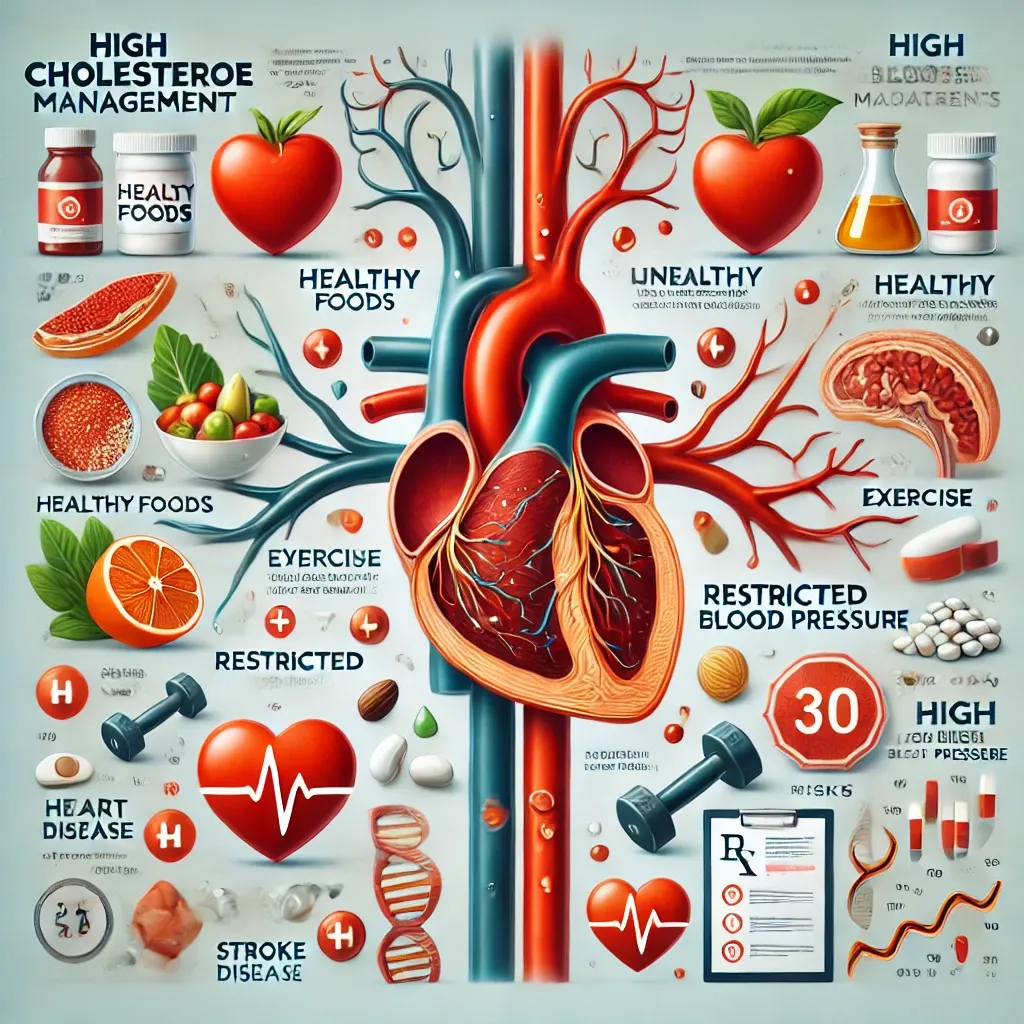Protect Your Heart: Insights into High Cholesterol Management
Cholesterol is essential for supporting cell function and hormone production, but when levels become too high, it poses serious health risks. Known as a "silent" condition, high cholesterol often shows no symptoms until complications arise. Learning about the risks, monitoring cholesterol levels, and exploring treatment options are crucial for protecting your heart and overall health.

Health Risks of High Cholesterol
Excess cholesterol in the blood can lead to atherosclerosis, where plaque builds up in the arteries, narrowing and hardening them. This can result in serious health issues, including:
- Heart Disease: A leading cause of chest pain, heart attacks, and heart failure.
- Stroke: Plaques can rupture, forming clots that block blood flow to the brain, causing a stroke.
- Peripheral Artery Disease (PAD): Reduced blood flow to the limbs can lead to pain, numbness, or tissue damage in severe cases.
- High Blood Pressure: Narrowed arteries force the heart to pump harder, often resulting in hypertension.
How to Check Cholesterol Levels
A blood test called a lipid panel is used to measure cholesterol levels. This test evaluates:
- Total Cholesterol: The total amount of cholesterol in the blood.
- Low-Density Lipoprotein (LDL): "Bad" cholesterol that contributes to plaque buildup.
- High-Density Lipoprotein (HDL): "Good" cholesterol that helps remove LDL from the bloodstream.
- Triglycerides: A type of fat that can contribute to plaque formation when levels are elevated.
Healthcare providers analyze these results alongside factors like age, weight, and medical history to assess cardiovascular risk.
Treatment Options for High Cholesterol
Managing high cholesterol involves a combination of lifestyle changes and, when necessary, medications:
Lifestyle Changes
- Heart-Healthy Diet: Increase consumption of fruits, vegetables, whole grains, lean proteins, and healthy fats (e.g., nuts, avocados, olive oil).
- Regular Exercise: Physical activity helps lower LDL and raise HDL levels.
- Weight Management: Maintaining a healthy weight reduces cholesterol and improves heart health.
- Quit Smoking: Smoking decreases HDL and damages blood vessels, worsening high cholesterol's effects.
Medications
- Statins: The most commonly prescribed drugs to lower LDL levels.
- Ezetimibe: Reduces cholesterol absorption in the intestines.
- PCSK9 Inhibitors: A newer class of medications that significantly lower LDL levels.
- Bile Acid Sequestrants: Help the body eliminate cholesterol by binding bile acids in the digestive tract.
Foods to Limit or Avoid
Certain foods contribute to high cholesterol and should be consumed in moderation or avoided entirely:
- Saturated Fats: Found in red meat, full-fat dairy, and processed foods.
- Trans Fats: Common in baked goods, fried foods, and margarine.
- Cholesterol-Rich Foods: Like organ meats, shellfish, and egg yolks (consume sparingly).
- Refined Sugars and Carbohydrates: These can raise triglyceride levels and exacerbate cholesterol issues.
Sources
American Heart Association: Cholesterol
Centers for Disease Control and Prevention (CDC): High Cholesterol Facts
Mayo Clinic: High Cholesterol

